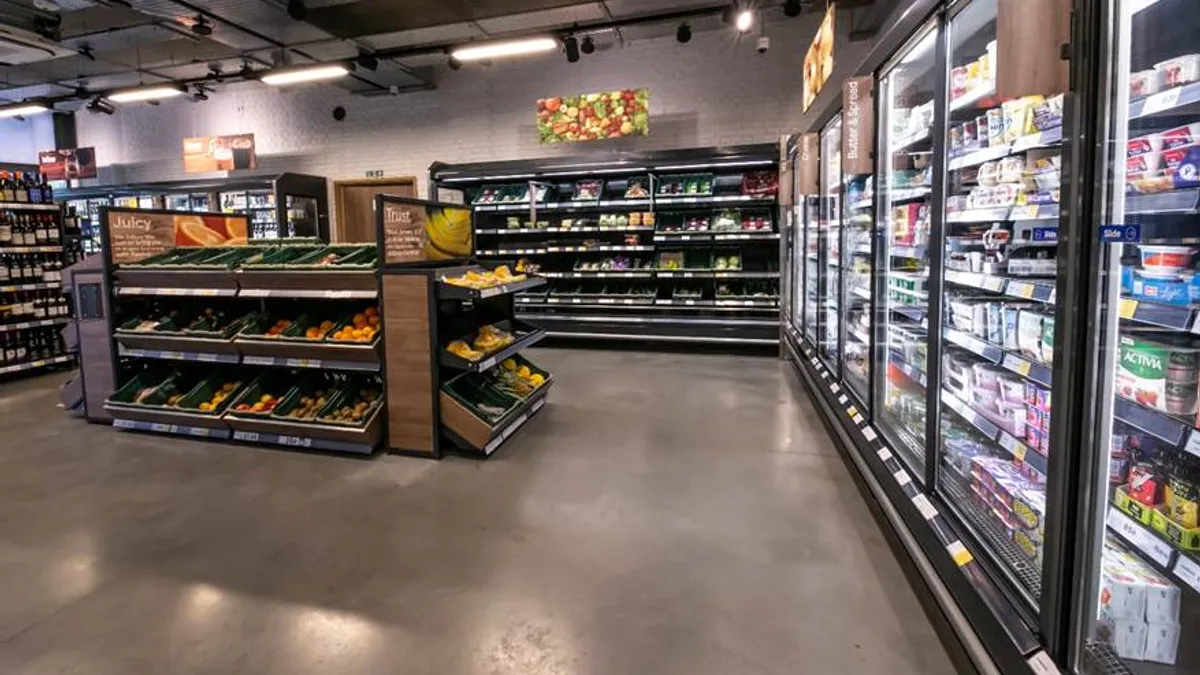Dive Brief:
- Smart checkout firm Trigo announced Monday it has raised $60 million in Series B funding, bringing its total funding to $94 million. The round was led by venture capital firm 83North and also included British supermarket chain Tesco, which is piloting Trigo’s technology at a convenience store near London.
- The company said it will use the funds to meet growing demand, boost research and development, and expand its global presence.
- Trigo said demand for its technology, which retrofits stores with an array of computer-vision cameras, has accelerated during 2020. The firm is working with retailers in mainland Europe to open tech-enhanced stores in 2021.
Dive Insight:
Trigo’s latest funding round, which nearly triples the amount it announced last year, highlights the growing interest in Amazon Go-like technology among retailers. The backing by Tesco, which is piloting the firm’s system at a 3,000-square-foot convenience store roughly 20 miles north of London, appears to have helped the startup springboard into mainland Europe and could eventually help it enter the U.S. market.
Like Amazon Go, Trigo uses ceiling-mounted cameras and AI-powered computer-vision technology to track customers and the products they choose, then automatically processes their payment as they leave. Unlike Amazon Go, Trigo retrofits onto existing stores, allowing retailers to incorporate the futuristic tech without added building costs.
Trigo is one of several firms, also including Grabango and Standard, that have developed smart checkout technology. In addition to promoting a contactless checkout experience, which has accelerated the use of mobile checkout programs and online ordering during the pandemic, these firms are increasingly promoting the added business intelligence their tracking technology delivers.
In its announcement, Trigo said its system also offers solutions like predictive inventory management, pricing optimization, security and fraud prevention, planogram compliance and even event-driven marketing.
“Our technology enables grocers to integrate the efficiencies and insights of digital commerce into the physical world while providing a frictionless checkout experience for customers,” Michael Gabay, Trigo’s co-founder and CEO, said in a statement.
Firms like Trigo hope these additional services will justify the steep cost of a technology whose benefits are still unproven in grocery. Smart checkout technology also faces questions over scalability, as it’s mainly small-size stores that have incorporated it so far.
Giant Eagle and Ahold Delhaize are among the U.S. retailers piloting smart checkout technology. Juniper Research predicts systems like Trigo’s will process $387 billion worth of transactions in 2025, up from $2 billion in 2020.













